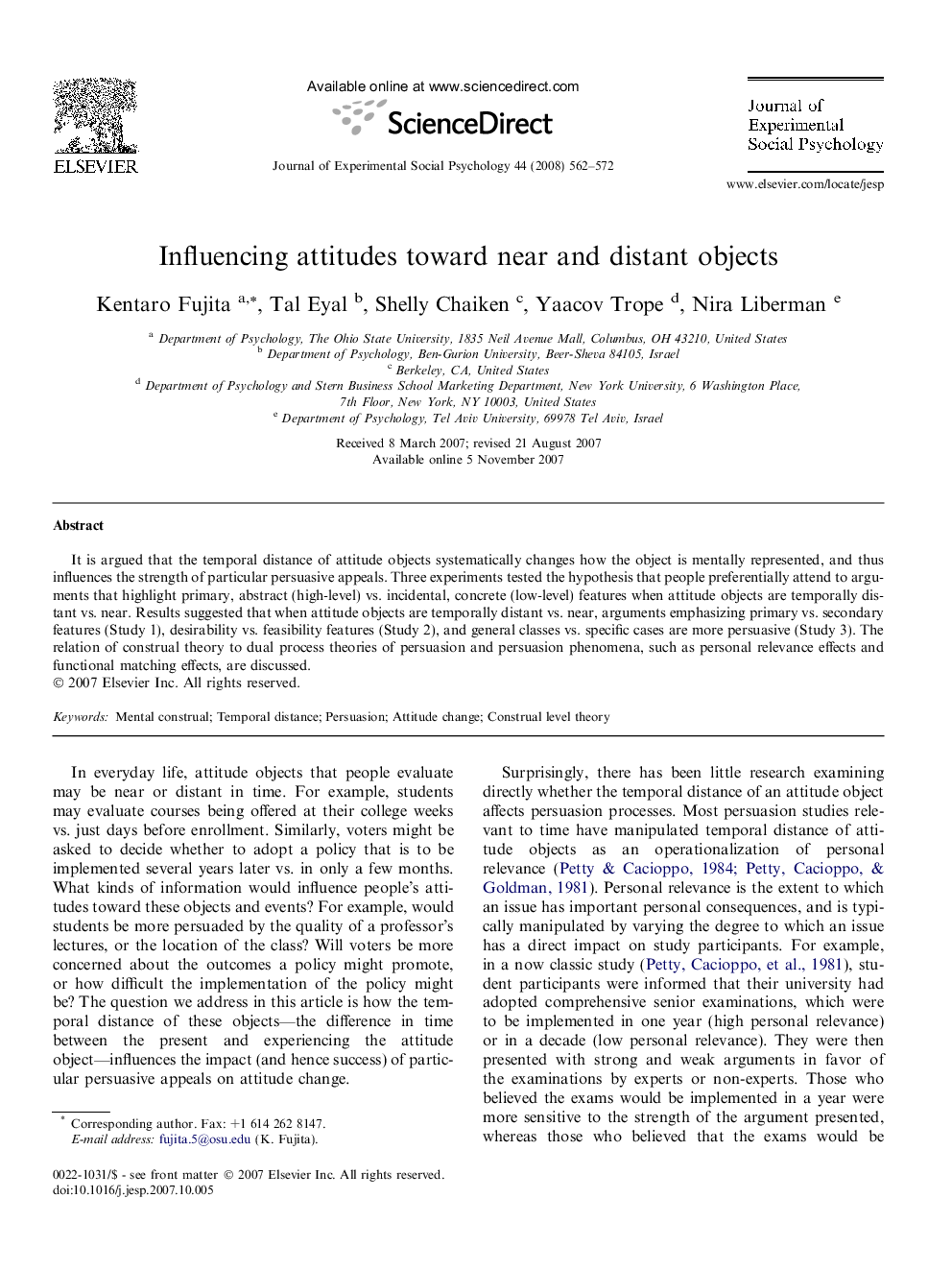| Article ID | Journal | Published Year | Pages | File Type |
|---|---|---|---|---|
| 948105 | Journal of Experimental Social Psychology | 2008 | 11 Pages |
It is argued that the temporal distance of attitude objects systematically changes how the object is mentally represented, and thus influences the strength of particular persuasive appeals. Three experiments tested the hypothesis that people preferentially attend to arguments that highlight primary, abstract (high-level) vs. incidental, concrete (low-level) features when attitude objects are temporally distant vs. near. Results suggested that when attitude objects are temporally distant vs. near, arguments emphasizing primary vs. secondary features (Study 1), desirability vs. feasibility features (Study 2), and general classes vs. specific cases are more persuasive (Study 3). The relation of construal theory to dual process theories of persuasion and persuasion phenomena, such as personal relevance effects and functional matching effects, are discussed.
